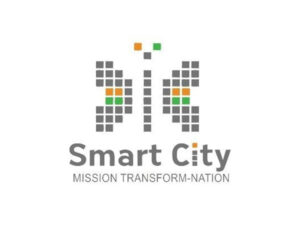Modi 3.0: Industry seeks roadmap to cement India’s lead in global digital arena, vows support
New Delhi, June 10 (PTI) Industry body DIPA has pledged its support to India’s digital and telecom transformation under the new government and sought a clear roadmap that would cement the country’s lead in digital infrastructure.
Digital Infrastructure Providers Association (DIPA) said the industry is eager to collaborate with the government and contribute its expertise to drive the country’s digital transformation further.
“Revolutionary policies like Digital India, Gati Shakti, and PM WiFi Access Network have enabled widespread adoption of digital infrastructure, empowering individuals and businesses across sectors, from small vegetable vendors to grocery stores,” Tilak Raj Dua, Director General of DIPA said.
The telecom industry in India has undergone transformative reforms over the past few years under Prime Minister Narendra Modi’s leadership, he said expressing confidence that the new government “will build upon this momentum, ensuring the seamless implementation and sustained success of these landmark initiatives.”
According to DIPA, as the new government takes charge, the telecom industry is seeking a clear vision and roadmap to cement India’s position as a global leader in digital infrastructure.
Narendra Modi was sworn in as prime minister on Sunday for a record-equalling third term, heading a 72-member Union Council of Ministers in the BJP-led National Democratic Alliance (NDA) government.
With the portfolio allocation of ministries likely to be announced shortly, the new government has its task cut out in the telecom sector, where spectrum auctions are slated to be held later this month.
While policies in coming months will bring more clarity around rules for satcom services and grant of airwaves, as well as shed light on OTT communication services, for now, all eyes are on the auctions scheduled to begin on June 25.
Also, the 100-day agenda of the Department of Telecommunications under the new government will see clear priority areas, key deliverables, roadmaps, and targets.
On June 4, as the election outcome unfolded, DoT pushed the spectrum auction by nearly three weeks to June 25. According to amendments made in the notice inviting applications for bids, the new date for “start of the live auction” has been changed to June 25 from June 6.
The government will auction eight spectrum bands for mobile phone services at a base price of about Rs 96,317 crore.
All the available spectrum in the 800 MHz, 900 MHz, 1,800 MHz, 2,100 MHz, 2,300 MHz, 2,500 MHz, 3,300 MHz, and 26 GHz bands are part of the auction. Reliance Jio has deposited the highest earnest money of Rs 3,000 crore for the spectrum auction, which gives the company the potential to bid for maximum radiowaves.
According to pre-qualified bidder details released by the DoT, Bharti Airtel has submitted the earnest money deposit (EMD) of Rs 1,050 crore and Vodafone Idea (VIL) of Rs 300 crore.
Companies get points based on the EMD amount they have deposited, which enables them to bid for the number of circles and quantity of spectrum they want. Higher points mean a higher capability to place bids.
The spectrum will be assigned for a period of 20 years and successful bidders will be allowed to make payments in 20 equal annual instalments.
The DoT has provided an option to surrender the spectrum acquired through the upcoming auction after a minimum period of 10 years.
“There is indeed high anticipation of these big events/developments lined up by the Centre. Spectrum auctions have been highly spoken about, and it is to be seen how this auction will pan out as well as the participation to the same from the industry. Some of the events around the space sector which have a direct implication on the telecom sector also has been keenly followed, given that there is a lot of focus on satellite broadband services and similar services using satellites,” Tony Verghese, Partner, JSA Advocates & Solicitors said.






